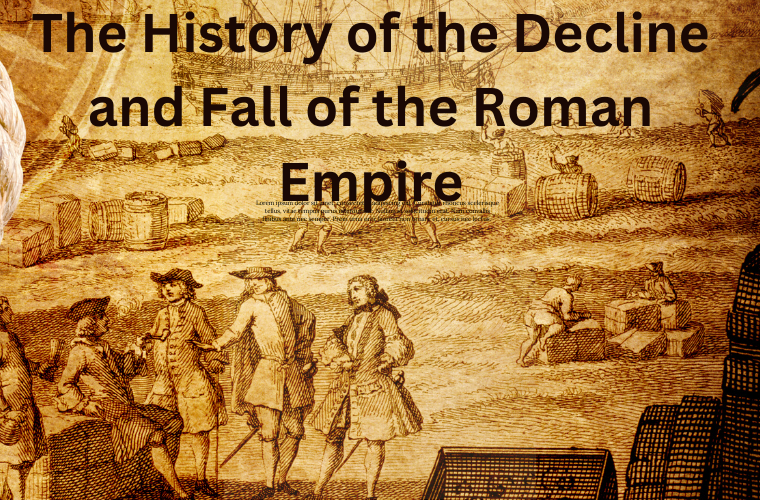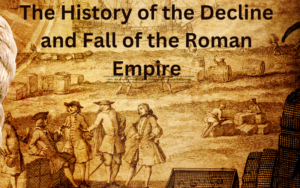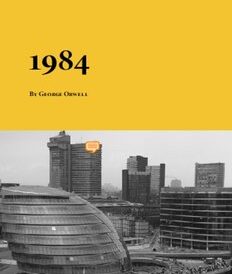About author
Edward Gibbon (1737-1794) was an English historian and politician. He is best author for his six-volume work. “The History of the Decline and Fall of the Roman Empire”, which published between 1776 and 1788.
This book is consider one of the greatest works of history ever written, and remains widely read and respected today. Gibbon’s writing style is characterize its elegant prose, and his impartial analysis of events and historical figures. He was a pioneer of the modern historical method and influenced generations of historians and writers.
Gibbon was a Member of Parliament for several years and served in various government positions. But his historical writing remains his most lasting legacy.
Summary of the Book
“The Decline and Fall of the Roman Empire” by Edward Gibbon “The Decline and Fall of the Roman Empire” by Edward Gibbon is a six-volume work that covers the history of the Roman Empire from the end of the 2nd century to the fall of the Byzantine Empire in the 15th century. The History of the Decline and Fall of the Roman Empire
The book provides a comprehensive analysis of the factors that led to the decline and eventual fall of the Roman Empire including internal decay, economic instability, political instability, and foreign invasions. Gibbon places particular emphasis on the role of the Roman Emperor, who he believed held immense power and had a significant impact on the empire’s fate.
He also explores the influence of Christianity on the empire and its role in the eventual collapse of the empire. The book is known for its balanced and impartial analysis of events, as well as its elegant writing style and is consider one of the most influential works of history ever
Reviews of the Book
“The Decline and Fall of the Roman Empire” is widely regarded as one of the greatest works of history ever. The book h praised for its impartial analysis of historical events.
Its elegant writing style, and its comprehensive coverage of the fall of the Roman Empire. Gibbon’s mastery of historical research and his insightful commentary on the rise and fall of civilizations have made the book a classic in the field of history.
Critics have noted the book’s balanced and objective approach to its subject matter, as well as its comprehensive treatment of the political, social, and cultural factors that contributed to the decline of the Roman Empire.
Gibbon’s analysis of the role of Christianity in the fall of the empire has a widely discussed, with some arguing that his views were too skeptical. While others have praised his nuanced understanding of the religion’s impact.
Despite its age, “The Decline and Fall of the Roman Empire” continues widely read and highly regard historians and general readers alike. The book is considered a masterpiece of historical writing, and its influence in countless works of history and literature. Overall, the book is widely considered a must-read for anyone interested in the history of the Roman Empire and its legacy.
Some Positive Comments
“The Decline and Fall of the Roman Empire” is widely regard as a classic of historical literature and has receive many positive reviews from readers over the years. Some common positive comments include:
- Impartial analysis: Many readers praise Gibbon’s objective and impartial analysis of the events and figures of the Roman Empire.
- Elegant writing: The book’s writing style is widely regarded as one of its strengths. Therefore, with many readers praising its elegance and clarity.
- Comprehensive coverage: Readers appreciate the comprehensive treatment of the political, social, and cultural factors. It contributed to the decline of the Roman Empire.
- Insightful commentary: The book’s insightful commentary on the rise and fall of civilizations has earned it high praise from many readers.
- Masterful research: Gibbon’s mastery of historical research is another factor that has earned the book many positive reviews from readers.
- Timeless relevance: Despite its age, “The Decline and Fall of the Roman Empire” continues to be widely read and highly regarded by readers. Who find its themes and insights to be timeless and relevant to modern times.
Overall, “The Decline and Fall of the Roman Empire” is widely consider a must-read for anyone interest in the history. Roman Empire and its legacy, and it continues to receive positive reviews from readers to this day.
The conclusion
The conclusion of the book offers a reflection on the decline and fall of the Roman Empire, and Gibbon attributes the decline to a combination of internal decay, invasions by barbarian tribes, and the spread of Christianity. He argues that the decline of the Roman Empire was a complex and gradual process. It ultimately caused a decline in moral and civic virtue, a loss of military discipline, and the decline of the classical education system.
Gibbon also notes that the decline of the Roman Empire had far-reaching consequences for the world. As therefore the empire’s collapse marked the end of the ancient world and the beginning of the Middle Ages. He concludes that the study of the decline and fall of the Roman Empire provides valuable lessons for future generations. Therefore, He emphasizes the importance of preserving the legacy of the Roman Empire in order to prevent similar declines from happening in the future.
In conclusion, “The History of the Decline and Fall of the Roman Empire” is a monumental work . However, that provides a comprehensive and insightful look at one of the most important periods in world history. Widely consider a classic of Western literature and continues widely read and studied today.





